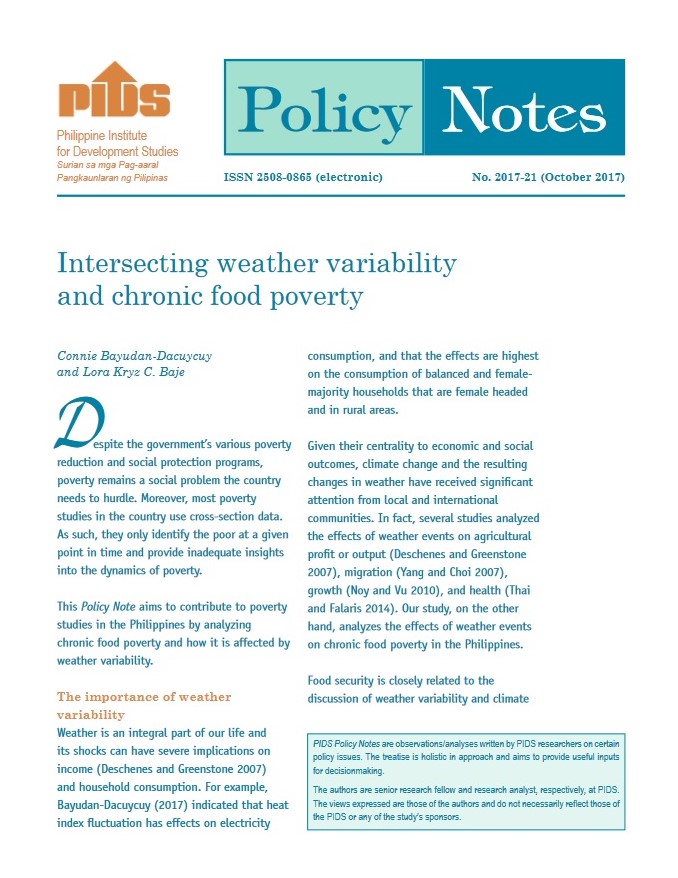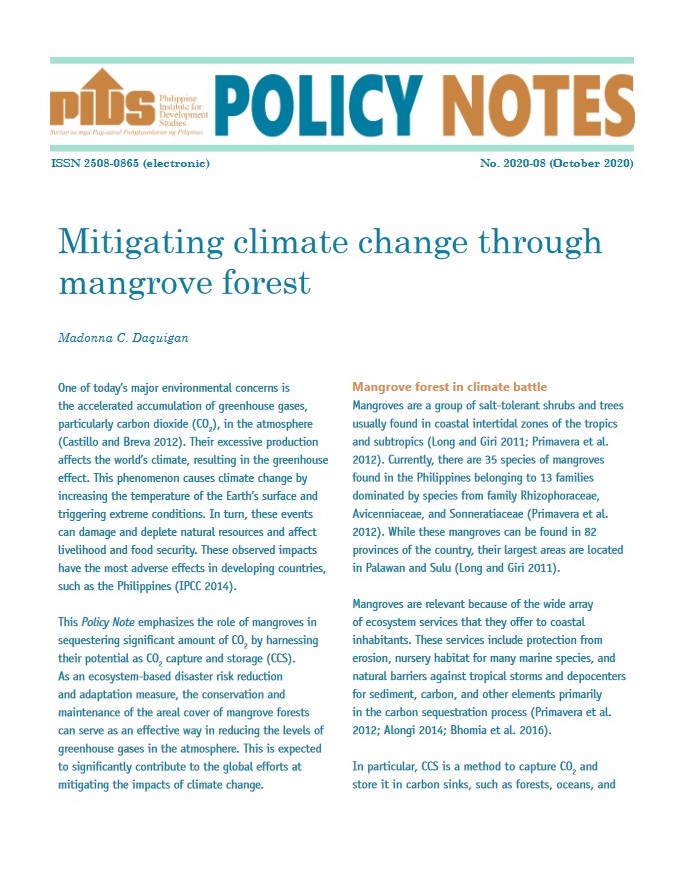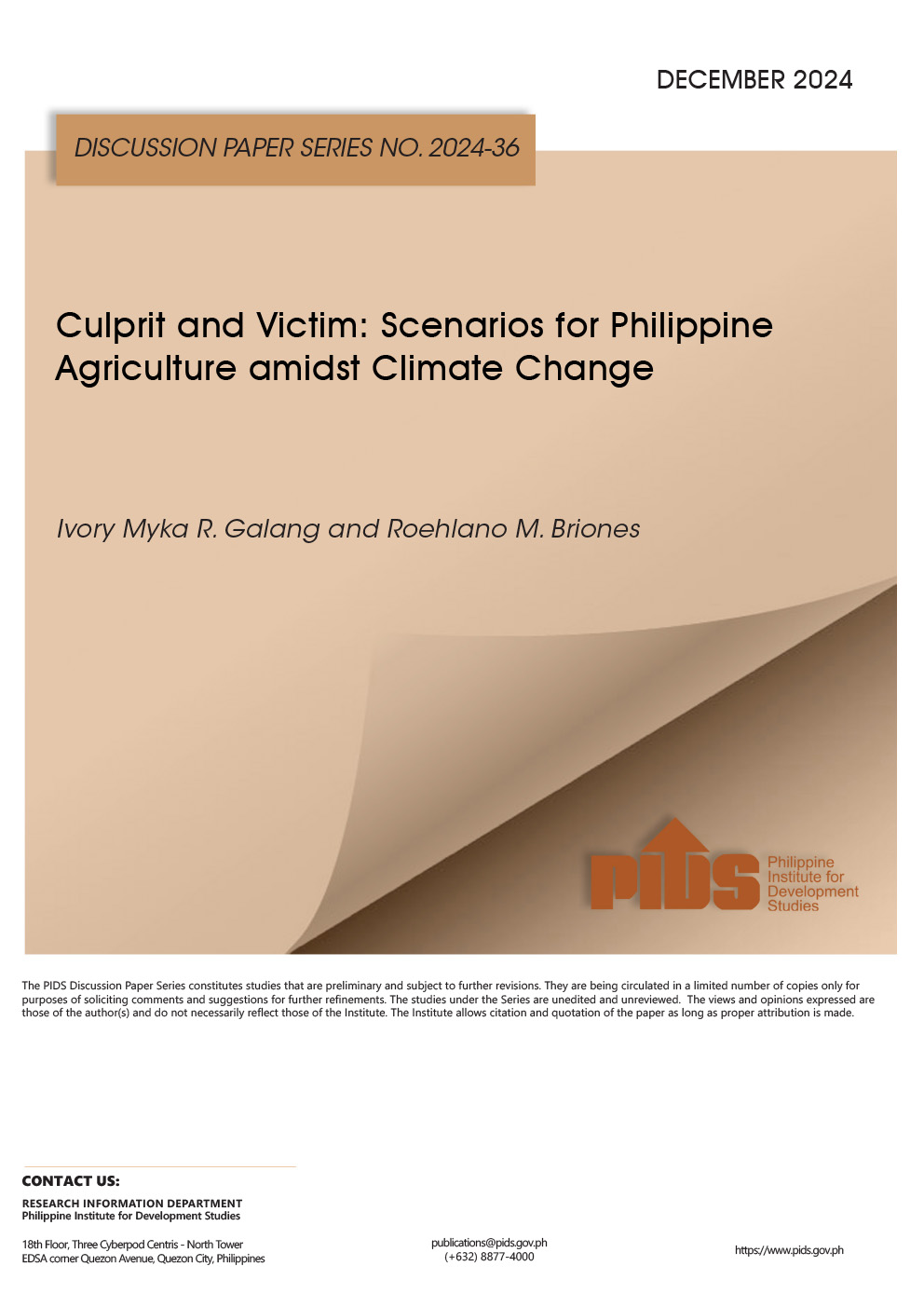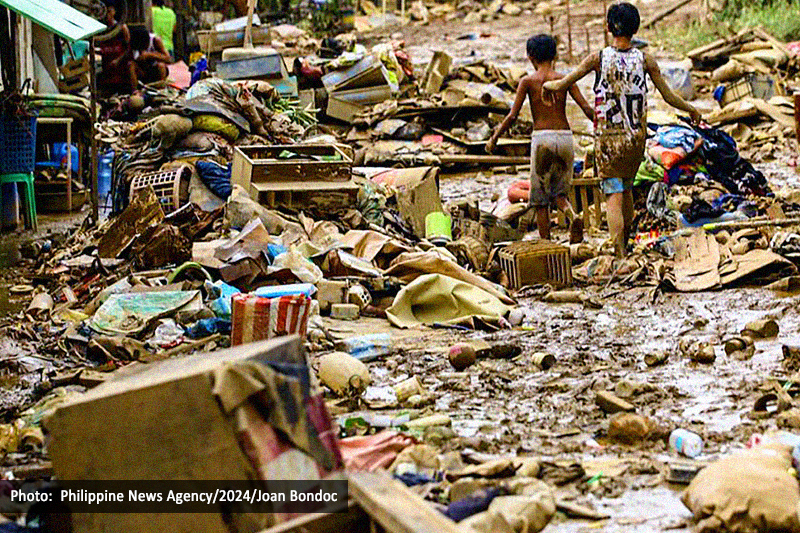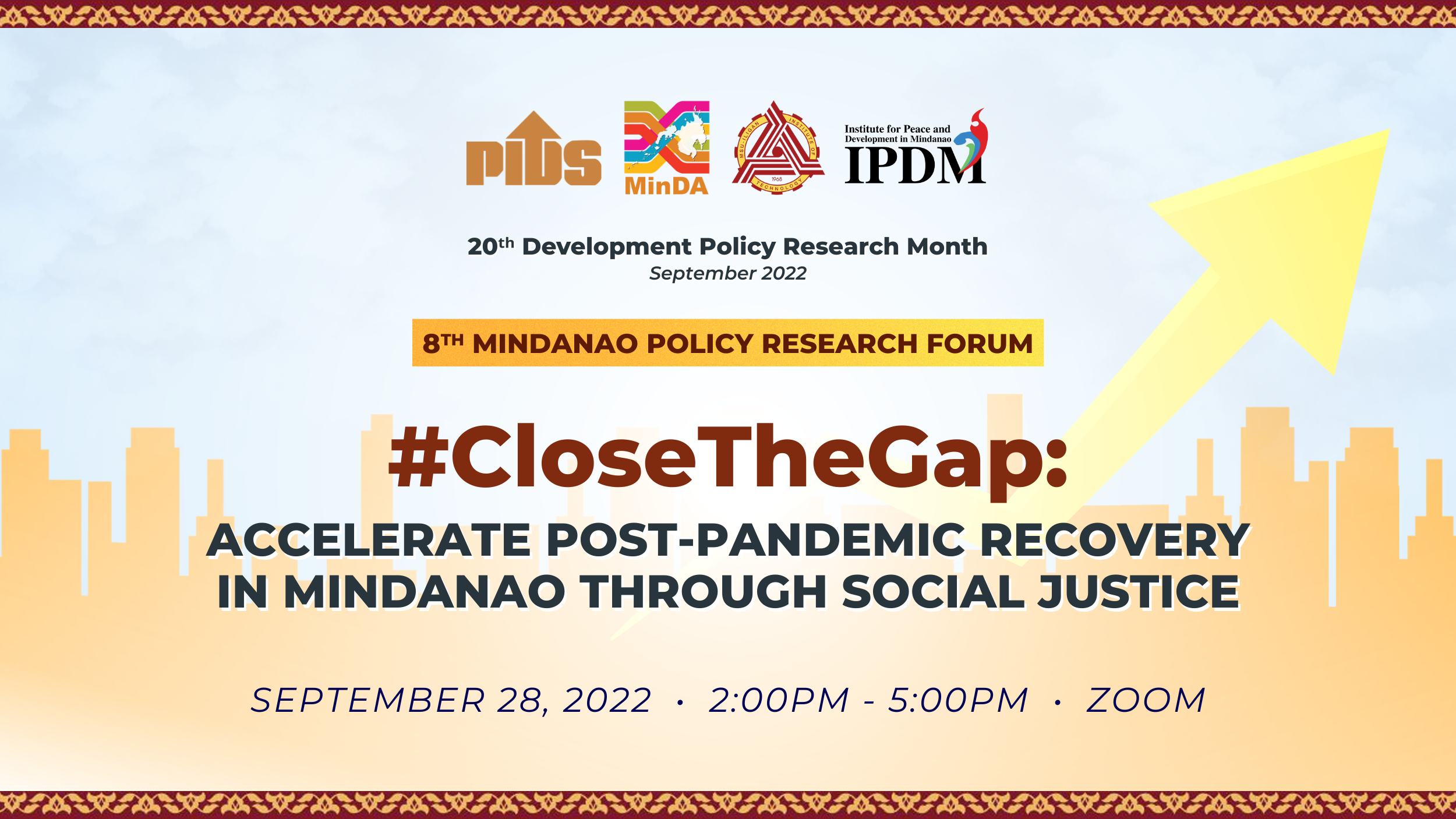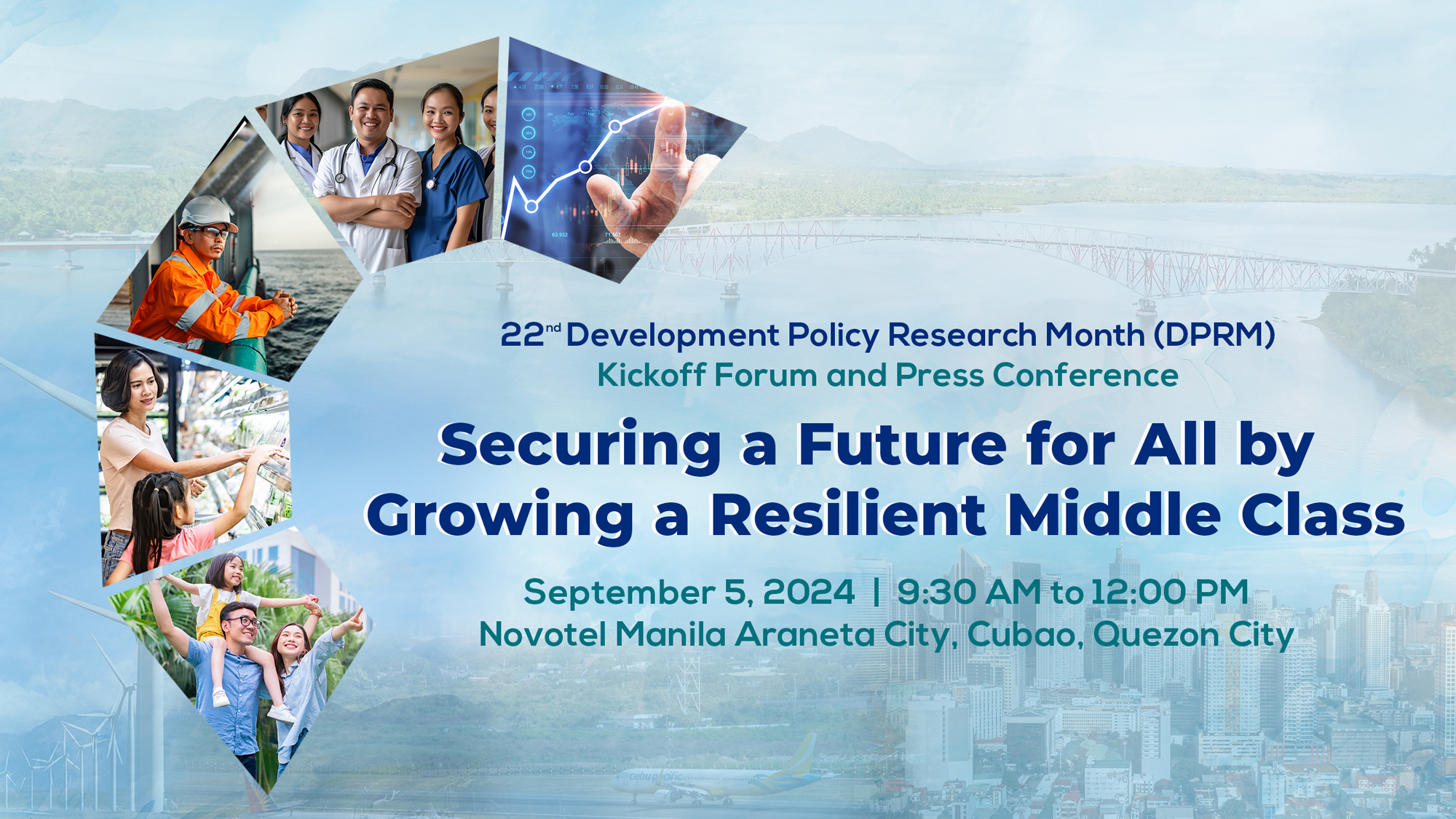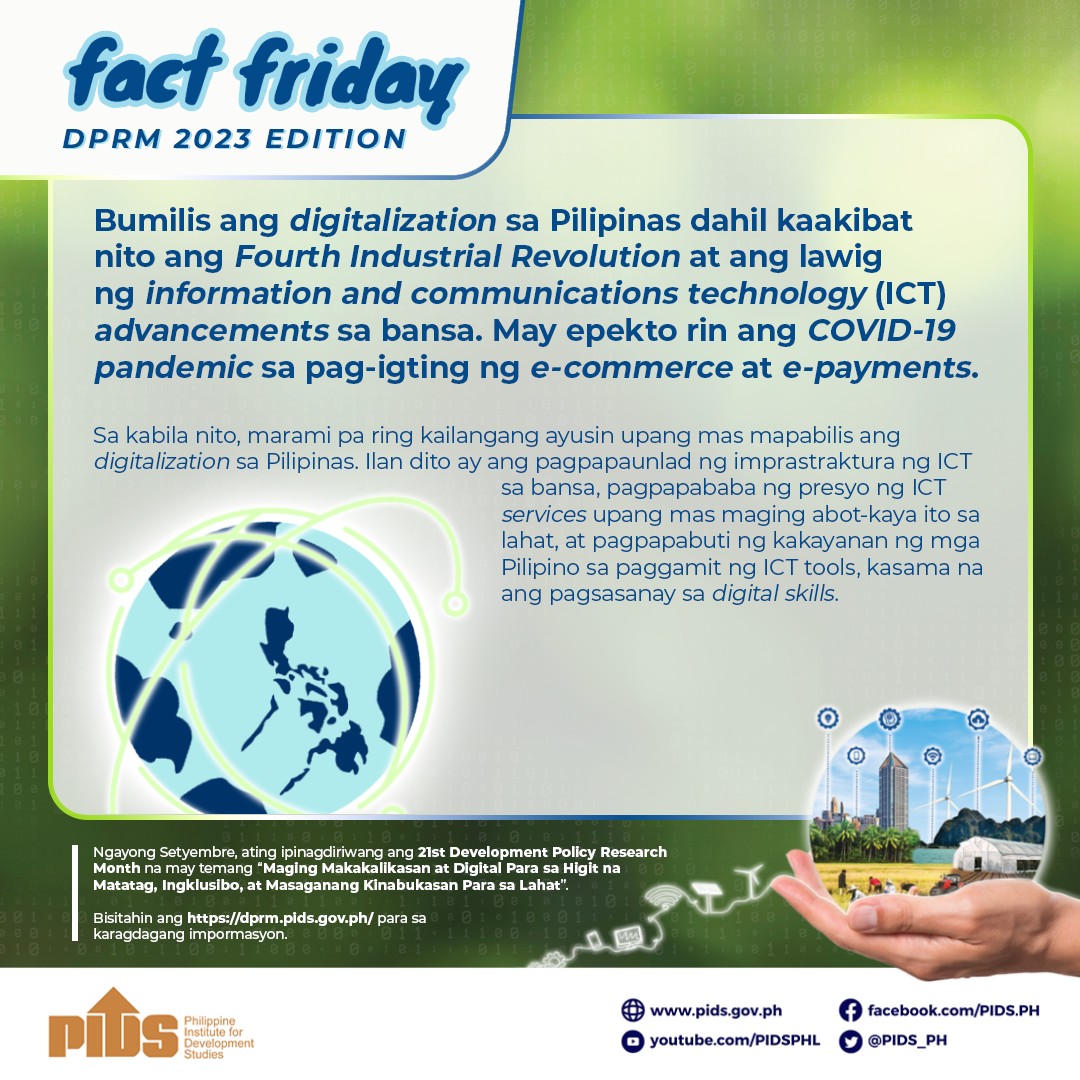Access to information and technical institutions are the most important factors in helping people cope with the impact of climate variations and change.
This is the reason behind the choice of the theme, `Coping with Climate variability and Change` for this year`s celebration of the Development Policy Research Month (DPRM). By coordinating studies and activities related to climate variations and change, the organizers of the 2009 DPRM celebration hope to raise the awareness of people about the important issues relating to climate variability and change. Specifically, the celebration hopes to serve as a venue for discussion, interaction and collaboration among the different sectors to come up with strategic risk-mitigation programs and measures to mitigate adverse effects of climate variations and change.
DPRM is an annual celebration mandated by Malacaang Proclamation 247, signed by President Arroyo in 2002. The observance of the Month is meant to elevate people`s awareness and appreciation of the value and importance of policy research in nation building. The Philippine Institute for Development Studies (PIDS) is the agency designated to lead and coordinate the activities for the annual observance of the DPRM. Activities lined up for this year`s DPRM celebration include consultative meetings, workshops and discussion forums, preparation and presentation of policy papers, production of posters and banners that can be displayed in institutions and agencies of government and the private sector.
`We cannot prevent climate variability and change they are inevitable. What we can do is to reduce the risk and take advantage of the opportunities brought about by climate variability,` said Dr. Josef Yap, PIDS president and chair of the 2009 DPRM Steering Committee.
Everyone is affected by the impacts from climate variability and change. However, ordinary people are the most affected by these phenomena because they are more vulnerable to climate variability and change impacts given their limited resources and available adaptation options.
Thus, ordinary people should be involved in identifying mitigation and adaptation options appropriate for their situations. In addition, they could also participate in identifying alternative designs or management practices that may enable them to better cope with climate variability such as extended droughts, floods and conditions resulting from periodic El Nino and La Nina events. These disruptions can take a major toll on a country`s economy if a significant part of economic activity such as agriculture is sensitive to the weather and climate. Thus, it is important to have the necessary mitigation and adaptation measures to address them.
This is the reason behind the choice of the theme, `Coping with Climate variability and Change` for this year`s celebration of the Development Policy Research Month (DPRM). By coordinating studies and activities related to climate variations and change, the organizers of the 2009 DPRM celebration hope to raise the awareness of people about the important issues relating to climate variability and change. Specifically, the celebration hopes to serve as a venue for discussion, interaction and collaboration among the different sectors to come up with strategic risk-mitigation programs and measures to mitigate adverse effects of climate variations and change.
DPRM is an annual celebration mandated by Malacaang Proclamation 247, signed by President Arroyo in 2002. The observance of the Month is meant to elevate people`s awareness and appreciation of the value and importance of policy research in nation building. The Philippine Institute for Development Studies (PIDS) is the agency designated to lead and coordinate the activities for the annual observance of the DPRM. Activities lined up for this year`s DPRM celebration include consultative meetings, workshops and discussion forums, preparation and presentation of policy papers, production of posters and banners that can be displayed in institutions and agencies of government and the private sector.
`We cannot prevent climate variability and change they are inevitable. What we can do is to reduce the risk and take advantage of the opportunities brought about by climate variability,` said Dr. Josef Yap, PIDS president and chair of the 2009 DPRM Steering Committee.
Everyone is affected by the impacts from climate variability and change. However, ordinary people are the most affected by these phenomena because they are more vulnerable to climate variability and change impacts given their limited resources and available adaptation options.
Thus, ordinary people should be involved in identifying mitigation and adaptation options appropriate for their situations. In addition, they could also participate in identifying alternative designs or management practices that may enable them to better cope with climate variability such as extended droughts, floods and conditions resulting from periodic El Nino and La Nina events. These disruptions can take a major toll on a country`s economy if a significant part of economic activity such as agriculture is sensitive to the weather and climate. Thus, it is important to have the necessary mitigation and adaptation measures to address them.

